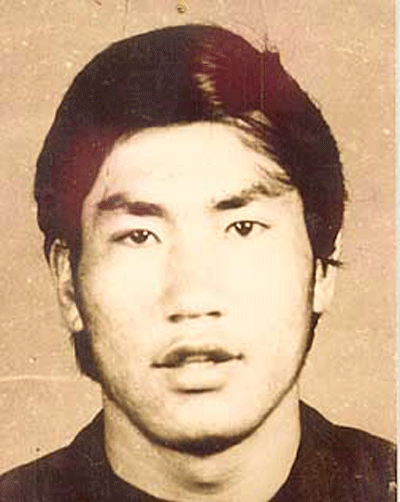Tibet: Prisoner's status under question
| Publisher | Radio Free Asia |
| Publication Date | 2 September 2011 |
| Cite as | Radio Free Asia, Tibet: Prisoner's status under question, 2 September 2011, available at: https://www.refworld.org/docid/4e6e02b323.html [accessed 26 May 2023] |
| Disclaimer | This is not a UNHCR publication. UNHCR is not responsible for, nor does it necessarily endorse, its content. Any views expressed are solely those of the author or publisher and do not necessarily reflect those of UNHCR, the United Nations or its Member States. |
2011-09-02
A long-serving Tibetan prisoner fights for his life under a cloud.
 Police patrol the streets of Lhasa during protests demanding independence for Tibet, Dec. 10, 1988. AFP
Police patrol the streets of Lhasa during protests demanding independence for Tibet, Dec. 10, 1988. AFP
Political prisoner or convicted murderer?
As Tibetan activist Lobsang Tenzin fights for his life in prison, his conviction for the death of a Chinese police officer two decades ago is being questioned.
Widely known as Tibet's longest-serving political prisoner, his health condition has taken a turn for the worse after a long fight with severe diabetes compounded by torture and beatings he received in jail, according to right groups.
He was only 22 when he was among five Tibetans charged in the death of a Chinese police officer who was beaten and thrown from a window after being detected photographing participants in a 1988 protest in the Tibetan capital Lhasa.
He was at first sentenced to death following his conviction on a charge of murder. The sentence was later commuted to a life term, following "strong" international pressure on China, according to the Dharamsala, India-based Tibetan Centre for Human Rights and Democracy (TCHRD).
"Yes, this was the conviction as far as we know. But whether Lobsang Tenzin was actually involved – we don't know," said Kate Saunders, spokeswoman for International Campaign for Tibet.
"I doubt that due legal process was involved – the circumstances of his imprisonment remain unclear. We know that someone killed a PAP [People's Armed Police] officer filming peaceful protesters, but we also know that one of the five or six defendants left Tibet later and said that all the defendants were innocent," she told RFA.
"That is significant in itself. I understand that Lobsang Tenzin is deeply respected among many Lhasa Tibetans and that many are anxious and fearful about his plight," she said.
Unclear
 Lobsang Tenzin - Undated photo courtesy of Free Tibet.
Lobsang Tenzin - Undated photo courtesy of Free Tibet.
The role of Tenzin and the other Tibetans in the killing of the Chinese policeman is still unclear, said Robbie Barnett, director of Columbia University's Modern Tibetan Studies Program.
"Nobody has ever said or explored what actually happened, or whether they were really guilty," Barnett said.
"Of course, the trial was completely unfair. So we don't know. We just don't know."
What is certain, Barnett said, is Tenzin's importance as an "early political thinker and activist" in the Tibetan struggle against rule by Beijing.
"He could have been a very important leader if he hadn't got caught up straightaway," Barnett said.
At present an inmate of the Chushur prison near Lhasa, Tenzin was a university student at the time of his arrest.
Even while incarcerated, Tenzin remained politically active, organizing a protest in Lhasa's notorious Drapchi prison and founding a group called Snow Lion Youth for Tibetan Independence.
In 1991, Tenzin and another prisoner attempted to pass a list containing the names of Tibetan political prisoners to U.S. Ambassador to China James Lilley, then visiting Tibet. The attempt led to further beatings and a term in solitary confinement.
Tenzin is among a long list of political prisoners in China, according to a database of 1,452 cases of political prisoners in the country compiled by the U.S. Congressional-Executive Commission on China, which monitors human rights and other rule-of-law developments in China.
Beijing mum
There has been no word from the Chinese authorities on Tenzin's latest condition.
Earlier this week, China jailed three Tibetan monks for up to 13 years for "abetting" the self immolation death of a fellow monk, raising criticism from the United States and rights groups. One groups called the action "purely political."
Tenzin remains a respected figure among Tibetans concerned over his health condition. His prison term is scheduled to end in 2012, according to TCHRD.
Saunders said Tenzin has "suffered tremendously during his long and lonely imprisonment, and the serious concerns for his welfare are justified given his experience under a harsh prison regime."
"Concern about Lobsang Tenzin's suffering in prison is compounded by awareness of his courage and solidarity with other Tibetan prisoners."
Reported by Richard Finney and Parameswaran Ponnudurai.
Link to original story on RFA website
